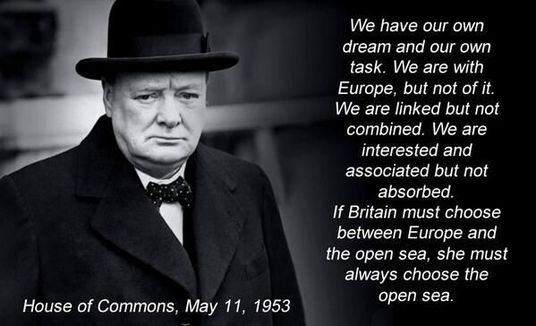
The fields are beginning to dry, and if we miss the showers this week, we could soon start on the list of jobs ‘to do’. They include harrowing and rolling the grass fields, and top dressing and spraying arable crops when the conditions allow.
The wheat from last year’s harvest has now all left the farm, and the remainder of the barley will leave this week. We had our annual TB test last week, which was fortunately clear and showed no reactors.
We should reach turnout with just enough hay and straw, but there are many livestock farmers who are already running short. Cattle were brought in earlier than usual last autumn when it became so wet.
Commodity prices continue to tumble, and there is no discernible magic light at the end of the tunnel. The financial whiz kids and future’s pundits are predicting that things will only get worse before they get better.
For farms which are dedicated to producing one commodity, be it milk, cereals, beef, sheep or pork, things are particularly tough. It is at times like these that small mixed farms with a good rotation, flexibility, slight of foot and the opportunity to diversify come into their own.
James Read a regular columnist in the Farmers Weekly reminds us that back in the early 2000s when prices were also hit hard, farm advisers were telling us to spread our costs by taking on more land, and specialise in one area. This was a time when many massive intensified arable units were developed.
Even then the smaller, mixed family farms able to cut costs dramatically, were making money, as they still can today. James reminds us of a timely old saying; “Profit is sanity, acres are vanity”.
Now in Lincolnshire and many mainly arable counties, increasingly farms are returning to mixed farming. They are restocking themselves, or employing sheep farmers to graze cover crops to be grown with arable crops in the spring.
If you want to keep your soil healthy with micro-organisms and enough organic matter to ensure good drainage and healthy fertility for the crops, land requires copious amounts of manure. Either being well grazed or by spreading farm yard manure.
As James Read says in his excellent article; perhaps if we had all stuck to mixed farming more, with everybody having a bit of everything (livestock/arable), our industry would not now be over-producing.
In the days when most average sized farms were mixed, the surrounding villages had more farming people with local jobs. And the pubs had less civil servants and more down to earth hard-working farming customers.
Mixed farms are busy all the year round, with the farmer, his employees and the livestock about, all creating a lively atmosphere. However, if you drive into a large arable unit in the winter, there is no one about, the doors are shut and there is probably tumble weed blowing about the yard, as Mr Read so graphically describes.
Small dairy farms are selling their cows and looking to diversify as they are unable to survive in the current financial climate. The last of the dairy cattle in our parish will disburse this summer. Not so many years ago there were 20 dairy herds in and around Wivelsfield, by this summer there will be none. The work is relentless as the cows need milking twice a day, 7 days a week. It is sad but understandable as you cannot continue to work this hard only to sell the milk at a loss.
It is encouraging to hear that Defra minister George Eustice, unlike Liz Truss, does have a plan B if the UK leaves the EU after the summer referendum. His vision would be for a more farmer friendly area payment scheme that farmers could enrol on automatically, rather than having the chaos of an annual application process with a hard deadline. As he said, “There are lots of things you could do differently”.
That would be a good start, and his suggestion that Cross-compliance, a bureaucratic nonsense entwined by red tape, would be scrapped. British farmers are among the best in the world, we shall blossom and prosper; under the right leadership.
It is timely to recall Winston Churchill’s famous summary of Europe. “We have our own dream and our own task. We are with Europe, but not of it. We are linked but not combined. We are interested and associated but not absorbed. If Britain must choose between Europe and the sea, she must always choose the open sea”.

 RSS Feed
RSS Feed